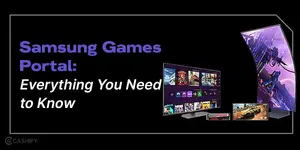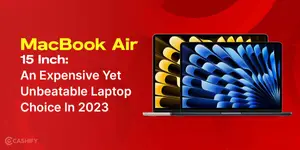If you are a graphics designer, programmer, video streamer or an average consumer using your PC/Laptop for basic web browsing, you need an Operating System that runs over your system that enables all this functionality.
There is no debate that Linux is a superior choice for tech enthusiasts and programmers compared to Windows. However, there are a lot of differences between these two operating systems, we’ll discuss all of them in this article.
Also Read: How To Update Graphics Driver In Windows 11?
Ubuntu Vs Windows
Cost: Free vs Paid
Ubuntu is practically free to use and open source in nature. Being open source means that a group of people simultaneously maintain the code and anyone can see, modify, and distribute the code. Whereas Windows is a licensed product by Microsoft.
Cost is impacted by licencing and that is why Ubuntu is practically free to use. Windows 10 is a little different. All previous iterations of Windows required an initial licence fee. Starting from Windows 10, it is officially free to use, but if you want to utilise any sophisticated features, you’ll need to pay (usually, you will).
However, even for businesses, that is hardly the complete picture. The cost of ownership is another factor. Theoretically, maintaining Ubuntu could be more expensive than maintaining Windows because Ubuntu-specific technicians are more expensive.
In general, using Ubuntu will benefit you if you’re installing it on a lot of machines. Installing an open-source operating system is free of any licence costs. To determine your actual cost of ownership, you’ll need to compare your estimated maintenance costs for Windows to those for Ubuntu.
Also Read: How To Give Windows 10 A Makeover To Look Like Windows 11
Gaming Compatibility
Windows is definitely the first choice of OS for gamers, and this is because all PC games are made compatible with Windows at least as it caters to a larger audience. While gaming is also possible on Ubuntu but most of the newer top-rated titles are not compatible with Ubuntu.
Also, most popular digital gaming distribution services like Steam, EA Games, and Epic Launcher are not compatible with Ubuntu. This makes it even harder for users to install gaming titles on Ubuntu.
Talking about resource usage, Windows will consume more resources than Ubuntu. If you see the image below you can see Windows 10 consumes double the RAM compared to Ubuntu.
User-Friendliness: Challenging vs. Easy
Ubuntu will undoubtedly be more difficult for users to get familiar with than Windows.
Windows was created from the ground up to be simple. Practically anything can be done by users right away. As long as a user is comfortable with a computer, anyone may use a Windows system. Additionally, switching between Windows and Mac OS is fairly simple.
The difficulty of using Ubuntu depends on whether you’re using the graphical user interface or a command line interface. Ubuntu can be used with a GUI, but many people choose to use the command line. But you need to be familiar with the commands in order to use them, otherwise, the command line presents unique difficulties. GUIs are simpler because they only require point-and-click operations. That does not imply that Ubuntu cannot be simple. A shift to Ubuntu may not be at all challenging for experienced users, but you need some basic knowledge.
Security Ubuntu Vs Windows
Security on Windows OS consists of a wide selection of firewalls, antivirus suites, and malware detection tools. Although Windows comes with Windows Defender already installed and you probably need additional protection in order to stay safe from viruses, ransomware, and other harmful software.
But none of that is present in Ubuntu. On Ubuntu, viruses typically don’t function. In addition to not typically being targeted, Linux-based systems also benefit from the rapid release of updates and the immediate patching of vulnerabilities due to their open-source nature. Unlike Windows or even Mac OS, Linux is not frequently the target of viruses or other harmful software.
Also Read: Windows 11 Tips And Tricks That You Should Not Miss
Reliability
Security of your system, process management, and uptime are major priorities for the Linux operating system. Linux has made a compromise in this area and is currently the most trustworthy and secure OS.
On the other hand, despite the fact that Microsoft’s stability has increased over time, it still lags well behind Linux. For the sake of usability and accessibility, numerous functionality has been sacrificed, which has caused system instability and security flaws.
Supported Software
Although Microsoft Office is available for Windows, Libre Office is what you get with Linux. Excel and its simple display methods on Windows take the victory in this case. In Windows, handling spreadsheets and word processing is significantly simpler. But another alternative is Google Docs which runs on your web browser independent of the OS your system is running. I’ve been using Google Docs for quite some time now and it is as good as Microsoft Office Suite more or less.
For other tools such as Adobe Photoshop on Windows, you can use Gimp on Ubuntu. For Adobe Illustrator, you can use Inkscape.
Also Read: How To Partition SSD In Windows 11?
Hardware Support
For most peripherals and hardware, you can rest assured that Windows will work. That is a reasonable assumption. The vast majority of hardware will be supported by Windows by default.
However, Ubuntu might not support all devices. Hardware that can be used with Ubuntu has a specific “Ubuntu-certified” label. As was previously noted, Ubuntu may not support graphics cards, although Windows will most likely support all models. Some versions of Ubuntu might not have the necessary codecs or drivers to support a particular piece of hardware.
Windows works with more types of hardware. However, if used as a command-line interface, Ubuntu and other Linux operating systems can operate on considerably smaller platforms. A minimum of 2.5 GB of hard drive space, 2 GHz dual-core processor, and 4 GB system memory with 25GB storage can all be used to run Ubuntu.
Windows is what you should use if you want a simpler graphical user interface. Windows 10 requires a 1 GHz or faster processor, 2 GB of RAM, and 20 GB of hard drive space as bare minimum requirements.
Troubleshoot & Support
Because Linux has such a large user base worldwide, it offers a tonne of online assistance. Through forums, message boards, and assistance websites, the Linux OS community supports users.
Support for Windows OS is available through built-in and online help systems, dedicated websites, and forums. Additionally, there are a tonne of Windows-related videos and publications online.
Comparison summary Ubuntu Vs Windows
| Points of Comparison | Windows 10 | Ubuntu |
| Company | Microsoft | Canonical Ltd |
| Price | Licensed | Free |
| Operating system | Windows NT | Linux |
| Latest version | Windows 11 | Ubuntu 18.04 |
| Security | Virus attacks are expected. Antivirus needs to be updated frequently. | No need of Antivirus |
| Regular updates | Not frequent and Time consuming updates. | Simple updates |
| Programming | Simple and easy to follow. | Simple but has compatibility issues. |
| Kernel type | Hybrid | Monolithic |
| Microsoft Office | Works well in Windows. | Not Compatible |
| Gaming Supported | Yes | Not meant for games. |
| Performance standard | Medium | High. Better than Windows. |
| User friendly | Extremely user-friendly. Can be learnt quickly. | Not easy to learn. |
| Ease of Operation | Mouse and Keyboard needed. | Only keyboard is needed. |
| Suitability for developers | No | Preferred choice by Developers. |
| Visual Assistant | Cortana | NO |
| Installation | Needs installation | Can be used from a Pen drive as well. |
| Booting Speed | Good | Boots faster than Windows. |
| Hardware Requirement | Latest versions do not run on old computers. | Compatible with all hardware. |
| Personalization | Limited modes for personalization. | Unlimited personalization options available. |
| Resource consumption | Higher than Ubuntu. | Less in comparison to Windows. |
| Installation | 80 X 25 text-based installation was used. Now, it is all Graphic based. | Terms like Cylinders, File system and Swap Space are jargons for ordinary users while installation. |
| Availability of Libraries in installation package | All required libraries are included in the installation package. | Not all libraries needed are available. Follows the assumption that some basic libraries are already installed on the system. |
| GUI and command line | Only Graphical interface is available. | Both GUI and command line interfaces are available. |
















